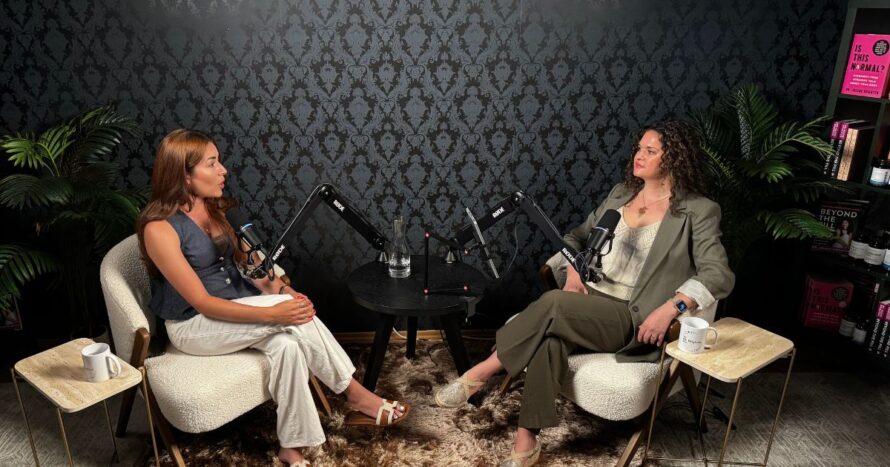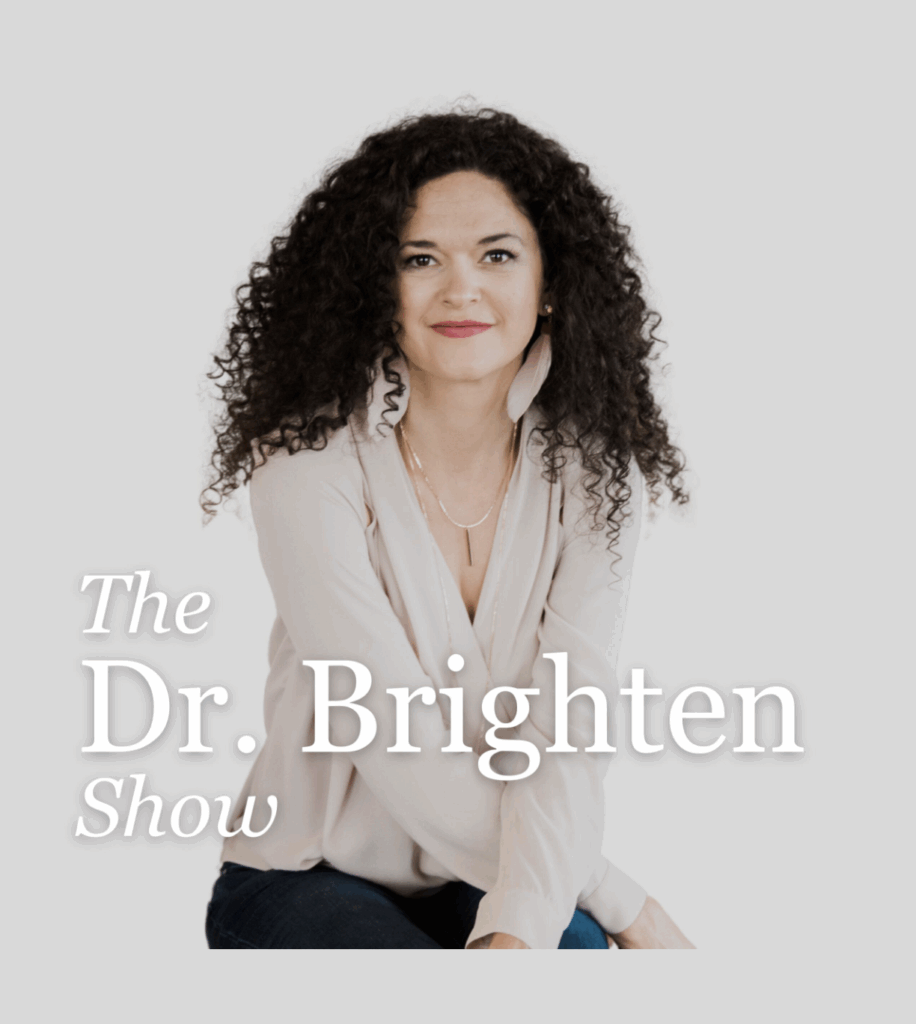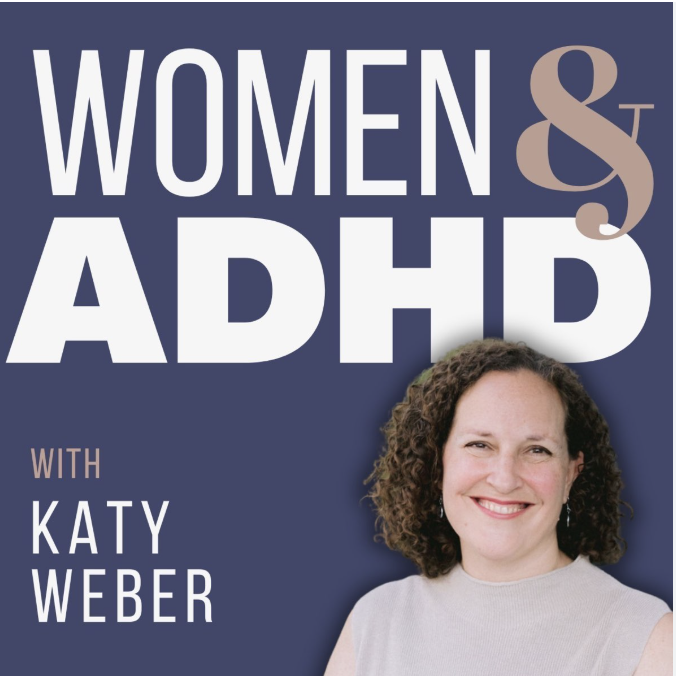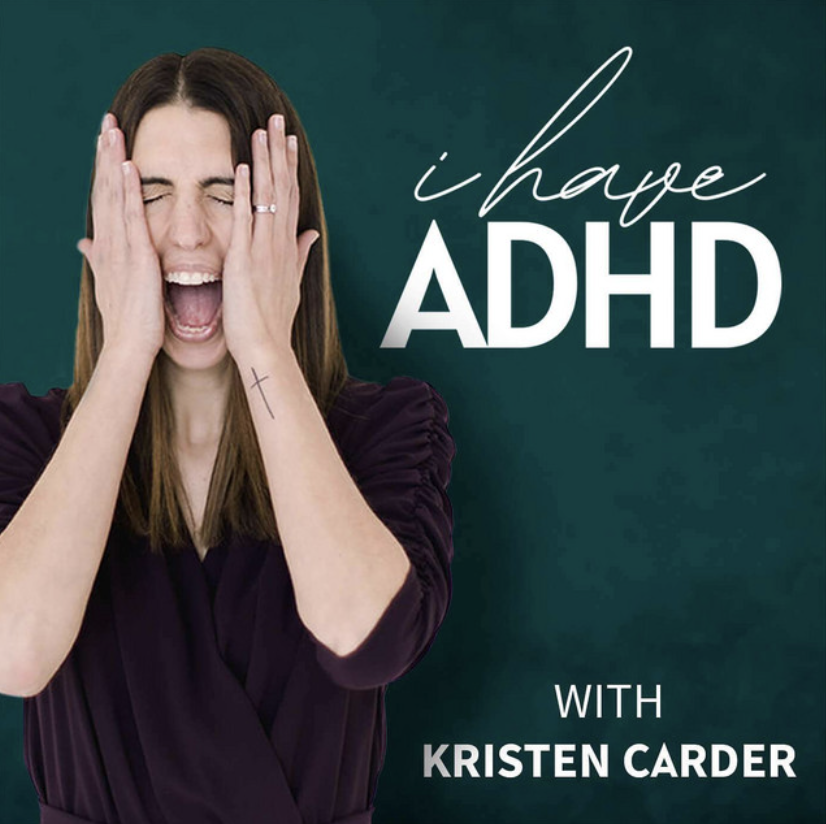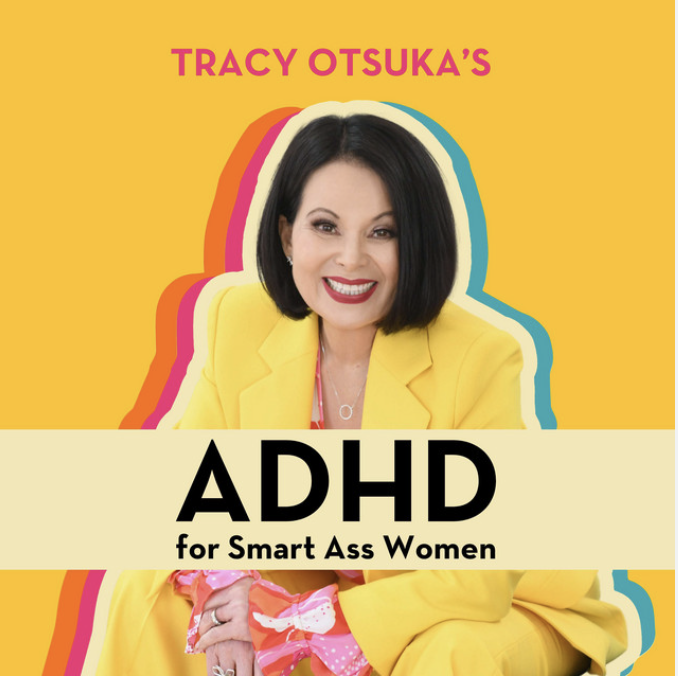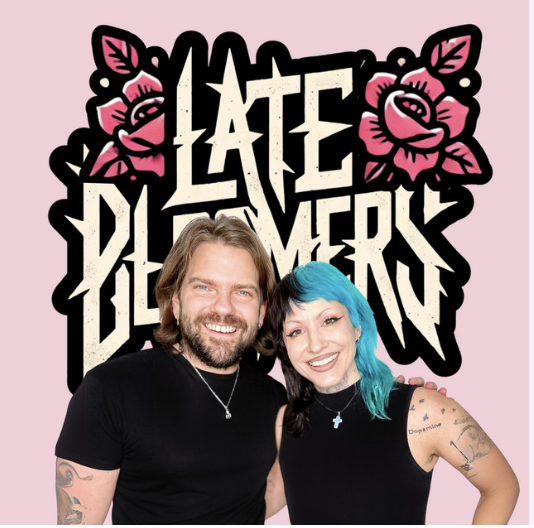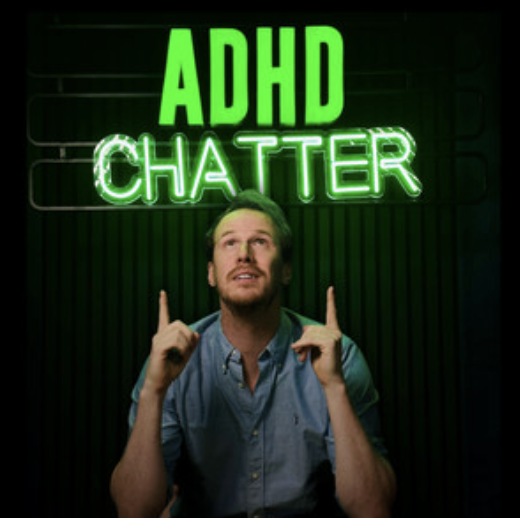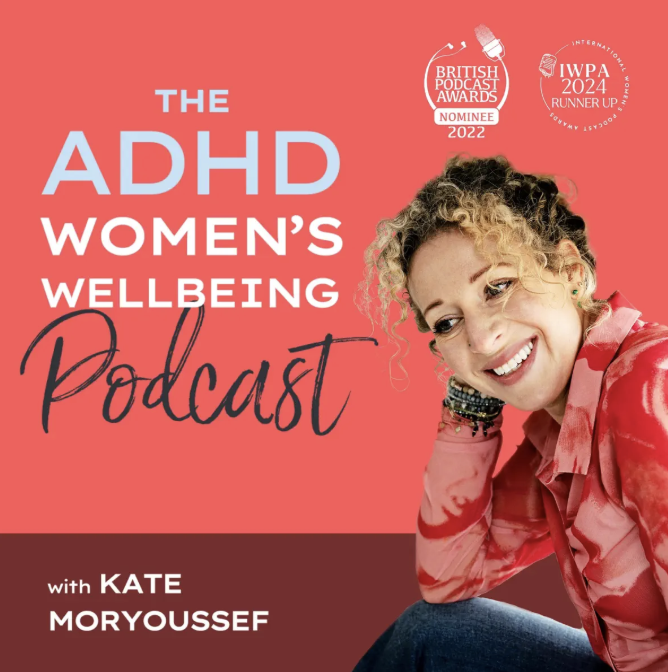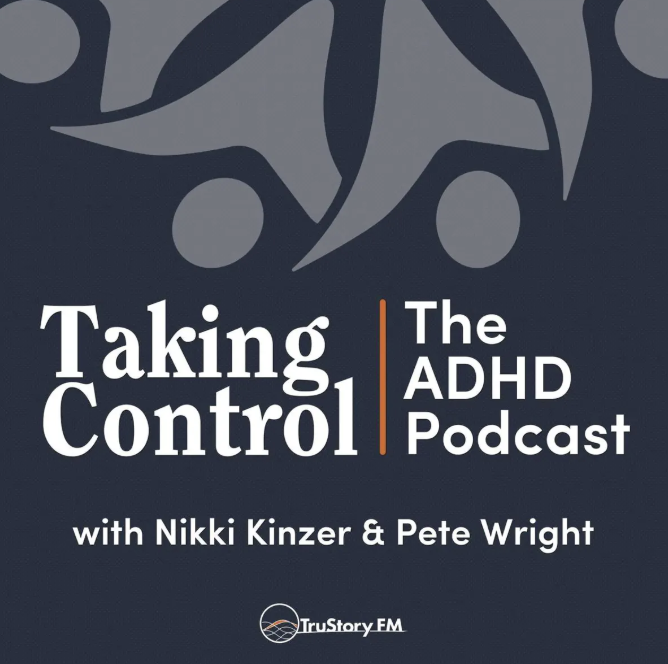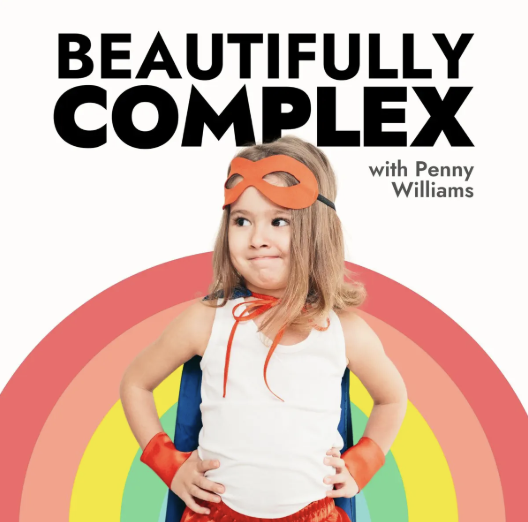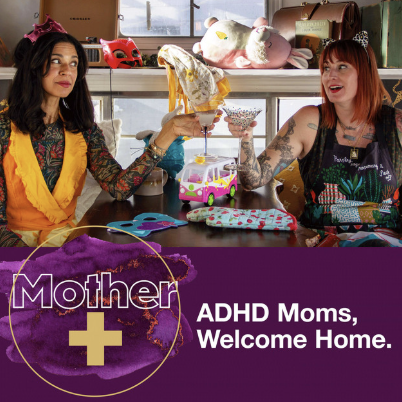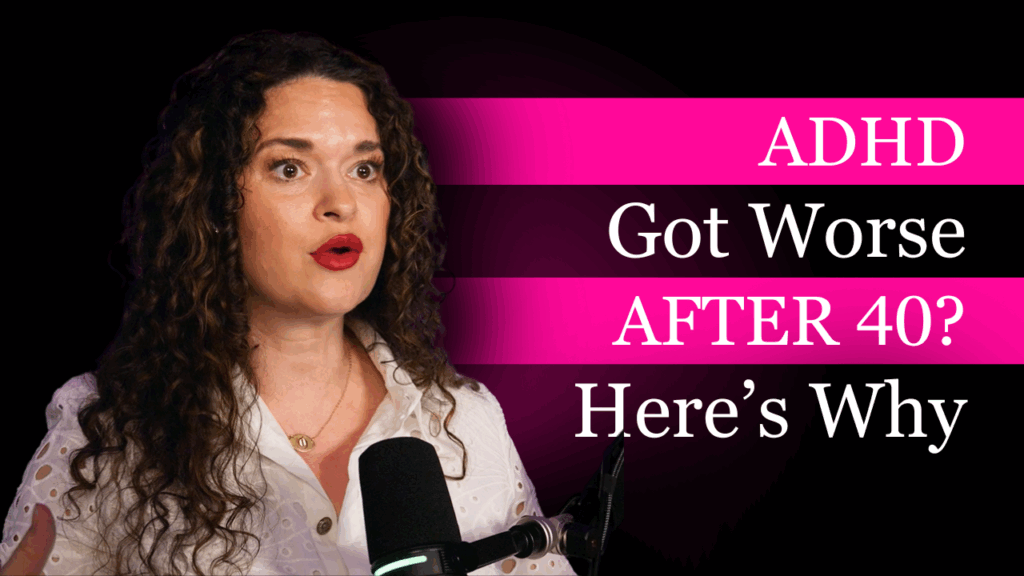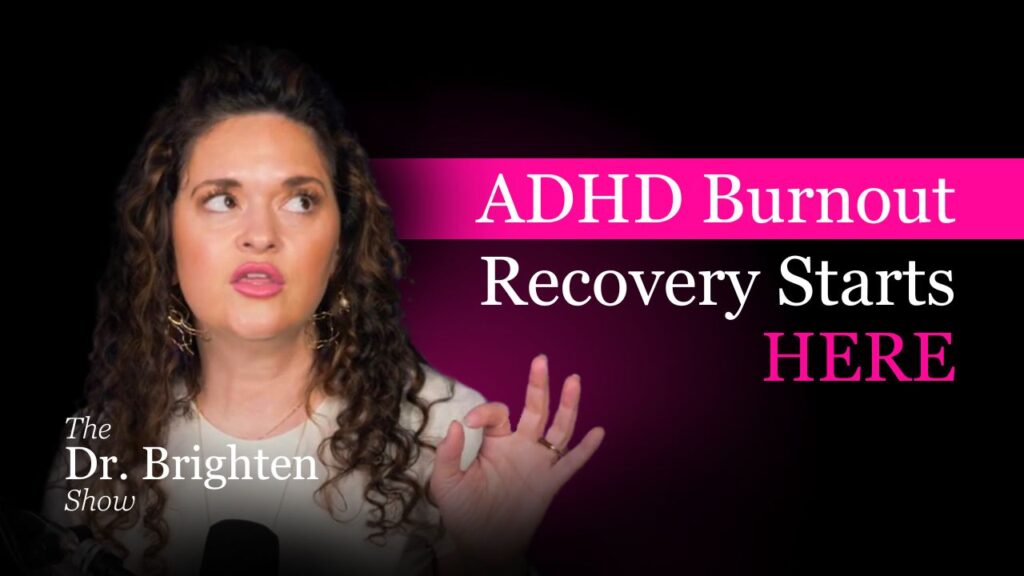If you're a woman navigating ADHD—whether you’re newly diagnosed, in your 30s or 40s, or noticing your symptoms intensify during PMS or perimenopause—this list is for you.
ADHD in women often goes unrecognized or misunderstood. But the right podcast can help you feel validated, supported, and equipped with tools that actually work for your brain and body. From hormone-aware strategies to executive functioning hacks and emotional support, these podcasts offer powerful insight into what it really means to live—and thrive—as a neurodivergent woman.
If you've ever felt scattered, overstimulated, or overwhelmed by life’s demands1, and you suspect it’s more than just being “busy”, you might potentially have ADHD.
Many women with undiagnosed ADHD (attention-deficit/hyperactivity disorder) go through life masking their symptoms or internalizing them as personal failings. But the truth is, ADHD looks different in women, and that realization can be life-changing.
Instead of “bouncing off the walls”, women with ADHD often appear “high functioning” on the outside while silently struggling with things like forgetfulness2, emotional overwhelm, and chronic disorganization on the inside. Hormonal shifts, including from monthly cycles and perimenopause or menopause, can also make ADHD symptoms even worse, leaving women exhausted and confused about why they can’t keep up.
Getting support starts with understanding what ADHD really looks like in women, and sometimes, hearing someone else’s story, such as in a podcast, is one of the most powerful places to start.
In this article:
- Top ADHD Podcasts for Women in 2025
- Additional Resources
- ADHD Podcasts for Women: Side-by-Side Comparison Table
- What Does ADHD Look Like in Women
- How Is ADHD Diagnosed?
- Best ADHD Treatments for Women: Medications, Therapy & Natural Support
- Frequently Asked Questions: ADHD Podcasts, Hormones & Support for Women
- Final Thoughts: Choosing the Right ADHD Podcast for You
Top ADHD Podcasts for Women in 2025
We’re lucky to live in a time when the stigma around ADHD (especially in women!) is finally starting to lift. More women are getting diagnosed later in life, speaking out about their experiences, and finding support through a growing network of resources.
The podcasts below are a great source of education, solidarity, and actionable tools for women navigating life with ADHD.
I will review these podcasts in detail below, but for a quick glance—these are the most empowering, relatable, and hormone-aware ADHD podcasts to support women at every stage:
- The Dr. Brighten Show – Hormones, ADHD, PMDD, perimenopause, and cycle-based brain optimization
- Women & ADHD (Katy Weber) – Late diagnosis, identity, and lived experiences from neurodivergent women
- I Have ADHD (Kristen Carder) – Executive functioning, emotional regulation, and productivity coaching
- Laugh Lines (Kim & Penn Holderness) – Humor, parenting, and mental health through a playful ADHD lens
- ADHD for Smart Ass Women (Tracy Otsuka) – Strengths-based strategies, creativity, and mindset reframes
- Late Bloomers (Rich & Rox Pink) – ADHD, addiction recovery, burnout, and rebuilding your life
- ADHD Chatter (Alex Partridge) – Honest, raw conversations on identity, mental health, and late diagnosis
- ADHD Women’s Wellbeing Podcast (Kate Moryoussef) – Holistic, non-medical support with a focus on nervous system and hormone health
- Taking Control: The ADHD Podcast (Nikki Kinzer & Pete Wright) – Coaching tools, systems, and therapy-backed strategies
- Beautifully Complex (Penny Williams) – Emotional regulation, parenting support, and compassionate partnership tools for neurodivergent families
1. The Dr. Brighten Show – Dr. Jolene Brighten
In my podcast, I discuss the connection between women's hormones, brain chemistry, and mental health. I explore how ADHD, PMDD, perimenopause, and cortisol imbalance affect women differently, and what to do about it. Episodes include solo teachings, expert interviews, and practical, research-based solutions. You’ll find ADHD specific content, along with helpful information to navigate other aspects of a well lived life.
Key takeaway: Hormones and brain health are inseparable, and when you understand how they interact, you can radically improve your mood, focus, and energy.
Top ADHD Tools and Strategies:
- Leveraging Hormones for Cognitive Clarity: I teach how to align focus, productivity, and rest with the natural hormone shifts of each menstrual phase.
- Blood Sugar & Brain Support: I show you how to build every meal around protein, fat, and fiber to reduce brain fog and stabilize dopamine levels.
- PMDD & ADHD Management Tools: I explain the hormone-brain link behind emotional dysregulation, plus natural ways to soothe mood swings and irritability in the luteal phase.
- Cortisol and Adrenal Health Protocols: I offer guidance on adrenal cocktails, stress supplements, and nervous system support to prevent burnout and cognitive fatigue.
- Holistic Supplement Strategies: I break down the science behind magnesium, B vitamins, adaptogens, and probiotics for supporting neurotransmitter balance and hormone detox.
- Bonus: I share free guides like the ADHD Woman’s Hormone & Brain Sync Guide to help women start healing immediately.
You can find all the free ADHD Resrouce for Women that I share here.
2. Women & ADHD – Katy Weber
Hosted by journalist and ADHD advocate Katy Weber, this podcast focuses exclusively on the experiences of women with ADHD. Each episode features in-depth interviews with neurodivergent women from all walks of life.
Key takeaway: It's possible to claim self-validation, self-discovery, and learn how to thrive, not just survive, with ADHD.
Top ADHD tools and solutions:
- Late-Diagnosis Reflection Worksheets: Prompts to unpack years of masking, self-blame, and shame to better understand how ADHD shaped your life and identity.
- Co-Regulation Practices: Use connection, validation, and community as emotional regulation tools, which is especially important for women with RSD (Rejection Sensitive Dysphoria).
- Sensory Diet Planning: Interviews with occupational therapists and coaches on how to support sensory needs throughout the day (like noise-canceling headphones, fidget tools, scent anchors).
- Career Clarity Tools: Advice and examples from guests on ADHD-friendly work environments, entrepreneurship, and how to create fulfilling routines that work with your brain.
- Self-Advocacy Scripts: Learn how to ask for support, whether from a therapist, doctor, or partner, using language that empowers rather than pathologizes.
3. I Have ADHD Podcast – Kristen Carder
This podcast is designed for high-achieving women who feel like they’re falling apart behind the scenes. Kristen, a certified ADHD coach, blends humor, education, and real talk about “time blindness,” executive dysfunction, and emotional dysregulation.
Key takeaway: You are not lazy or broken; your brain just works differently.
Top ADHD tools and solutions:
- The 5-Minute Task Rule: Break overwhelming tasks into a 5-minute version to overcome task paralysis and build momentum.
- Time Awareness Training: Use visual timers and alarms (like the Time Timer® or phone alarms) to improve “time blindness” and help you stay on track.
- Thought Downloads: A journaling technique to get racing thoughts out of your head and onto paper, which helps reduce anxiety and increase focus.
- Emotional Regulation Routines: Try simple practices like body scans, self-validation scripts (such as “Nothing has gone wrong, my nervous system is just overstimulated”), and “buffer zones” between tasks to prevent meltdown.
- Weekly Planning Sessions: Learn how to set up ADHD-friendly calendars with plenty of white space and realistic expectations. Specifically, Kristen encourages the “1-3-1” model, meaning choose 1 big task, 3 medium, and 1 small per day.
- Celebrating Small Wins: Retrain your brain to notice what is working, not just what’s missing, to shift out of shame spirals and boost motivation.
- Self-Compassion Scripts: Kristen models kind inner dialogue to replace the critical inner voice many women with ADHD carry around.
4. Laugh Lines — With Kim & Penn Holderness
Laugh Lines is hosted by viral creators Kim and Penn Holderness, who blend humor and heart and explore parenting, relationships, and mental health through a lighthearted lens. Their playful banter makes big topics feel relatable and less overwhelming.
Key takeaway: Life’s little quirks, including ADHD, are easier to handle when you laugh along the way.
Top ADHD Tools and Strategies:
- Humor as a Reset Button: Use laughter and light storytelling to help diffuse stress, shift your energy, and reframe ADHD-related frustration.
- Shared Storytelling: Take in others' experiences to normalize forgetfulness, overwhelm, and parenting chaos, which can offer some relief when you realize you’re not alone.
- Mini Mindful Moments: Try in-the-moment check-ins, like pausing mid-day for a deep breath or a quick laugh, to break the cycle of overwhelm.
- Couples’ Teamwork Tactics: Use an “us vs. the problem” dynamic, in which you tackle problems as a team (like household responsibilities, parenting, and scheduling) with humor and empathy as much as possible.
5. ADHD for Smart Ass Women – Tracy Otsuka
This high-energy show focuses on successful women with ADHD. Tracy, a lawyer-turned-coach, highlights strengths-based strategies and focuses on how ADHD can be a superpower.
Key takeaway: ADHD doesn’t mean you’re broken—it means your brain is wired for creativity, energy, and insight. Harness your intensity to live unapologetically.
Top ADHD tools and solutions:
- Strength-Based Self-Inquiry: Tracy encourages women to identify what is working and build from there, using interest, excitement, and natural talent as a compass.
- The Power of Dopamine Dressing: Wear colors and outfits that bring joy and confidence to boost dopamine and reduce sluggishness or shame-based thinking.
- Creative Structure: Instead of rigid schedules, Tracy suggests creating flexible “containers” for tasks that align with your strengths and rhythms.
- Mindset Reframes: Regularly challenge negative beliefs like “I’m too much” or “I never finish anything” and replace them with empowering truths about how ADHD brains actually function.
- Passion-Driven Productivity: Embrace hyperfocus and leverage it strategically instead of fighting against it.
6. Late Bloomers – Rich & Rox Pink
Rich and Rox share raw, unfiltered stories of surviving ADHD, addiction, divorce, and burnout, then rewriting their narrative together. Their show is a no-BS guide to thriving when you feel like you’re starting over.
Key takeaway: It’s never too late to reclaim your life, no matter how messy it’s been.
Top ADHD Tools and Strategies:
- Normalize the “Late Bloomer” Journey: Their frank storytelling reminds us that delayed growth, messiness, and detours can be your credentials, not your shame.
- Reframe Life Admin as Self-Care: View tasks like laundry, bills, and organization as acts of love for your future self helps shift perspective and reduce overwhelm.
- Micro-Win Mindset: Celebrate small victories—like opening a letter or folding socks—to build momentum and self-trust over time.
- Relationship Repair Tips: Utilize communication tools to reduce misunderstanding and shame in neurodivergent partnerships and build healthier connections.
7. ADHD Chatter – Alex Patridge
Hosted by Alex Partridge, the tone of this podcast is raw, honest, and refreshingly relatable. Alex has candid conversations about ADHD, bringing its struggles into the mainstream. He shares his personal journey of late diagnosis, addiction, and mental health struggles, while interviewing experts, celebrities, and everyday people with ADHD.
Key takeaway: ADHD isn’t just a productivity issue; it’s deeply tied to identity, self-worth, and mental health, and talking about it openly breaks shame cycles and builds community.
Top ADHD Tools and Strategies:
- Radical Self-Acceptance: Normalize the emotional rollercoaster of ADHD and stop masking to start embracing a neurodivergent identity.
- Peer Stories as Therapy: You're not alone, and interviews with high-profile guests and everyday voices will remind you of this while also teaching you real-life coping strategies.
- Addiction & ADHD Education: Recognize the link between ADHD and substance use, and spot self-medicating patterns more easily so you can access healthier coping tools.
- Mental Health Integration: Address depression, anxiety, and trauma alongside ADHD in a “whole-person approach” to healing.
- Permission to Slow Down: Rest and reset without guilt to avoid people pleasing and burnout.
8. The ADHD Women's Wellbeing Podcast – Kate Moryoussef
This UK-based podcast combines ADHD, mental health, and holistic wellness. Kate discusses non-medical treatments for ADHD, hormone balance, and gentle lifestyle strategies.
Key takeaway: Emotional regulation and hormone support are key to thriving with ADHD.
Top ADHD tools and solutions:
- Nervous System Soothing Routines: Incorporate tools like breathwork, vagus nerve toning, cold exposure, or EFT tapping to calm overstimulation.
- Hormonal Awareness Tracking: Learn how to sync your ADHD management with your menstrual cycle (especially the luteal phase) to reduce burnout and emotional spirals.
- Nutritional Support for Focus: Use whole foods, blood sugar balance, and magnesium-rich meals to stabilize mood and energy throughout the day.
- Digital Declutter Practices: Create screen boundaries, using apps like “Focus Keeper” or “Forest,” and setting social media-free windows to reduce overwhelm.
- Self-Compassion Breaks: Try guided mindfulness techniques to gently reconnect with your body and emotions during ADHD shame spirals.
9. Taking Control: The ADHD Podcast – Nikki Kinzer & Pete Wright
This long-running show is grounded in ADHD treatment therapy and coaching advice. Episodes cover everything from calendar hacks to improving sleep and reducing anxiety.
Key takeaway: Sustainable systems and compassionate self-talk go a long way.
Top ADHD Tools and Strategies:
- Time Blocking for the ADHD Brain: Learn how to schedule your day around focus windows and energy dips, using color-coded calendars and priority tiers.
- The ADHD “Parking Lot”: A brain dump technique to capture distracting thoughts or tasks throughout the day so you can revisit them later without interrupting focus.
- Sleep Optimization for Focus: Explores evening wind-down routines, light hygiene, and sleep-friendly supplements to help ADHD brains calm down at night.
- The “Good Enough” Principle: Encourages progress over perfection with mindset shifts like “done is better than perfect” and micro-tasking wins.
- Supportive Accountability: Highlights the value of working with an ADHD coach or body-doubling partner to stay consistent without self-judgment.
10. Beautifully Complex – Penny Williams
This podcast is designed for parents of neurodivergent kids, but many episodes focus on women, emotional regulation, and coping with ADHD as a family. Penny Williams, a parenting coach and author, combines science-based insights with real-world strategies for thriving with ADHD, autism, anxiety, and more.
Key takeaway: Seeing the full picture of neurodivergence, including environment, emotions, and nervous system triggers, can lead to real growth and relief.
Top ADHD Tools and Strategies:
- Emotional Co-Regulation: Penny teaches calming strategies that help parents and kids (or women and partners) ride emotional waves more smoothly, like breathing cues, sensory check-ins, and “name it to tame it” techniques.
- Compassionate Communication Scripts: Shift from criticism or shutdown into connection, especially during meltdowns or executive dysfunction moments.
- Root Cause Reflection: Rather than focusing only on surface behaviors (like lateness or disorganization), Penny teaches you to uncover the why, like sensory overload, slow processing, or task initiation anxiety.
- Environment Engineering: Create supportive environments that reduce overwhelm, such as using checklists, routines, timers, and sensory-friendly zones.
- Parenting & Partnership Support: Even if you're not a parent, Penny’s insights into emotional labor, shared responsibility, and neurodivergent dynamics in relationships are invaluable for ADHD women.
11. Mother Plus Podcast – Stephanie Sprenger & Stacy Hutson
Mother Plus is for the moms who love their kids and crave more. Hosts Stephanie and Stacy create a warm, funny, and refreshingly honest space for women who feel like motherhood is only one part of their identity and not the whole story. If you’re a neurodivergent mom juggling ADHD with creative ambition, big dreams, or just the longing to feel like yourself again, this show will speak to you deeply.
Key takeaway: You’re allowed to want more than motherhood—and claiming that truth is a radical act of self-respect.
Top ADHD Tools and Strategies:
- Creative Identity Revival: Inspires moms with ADHD to reconnect with creative callings, passions, or ambitions that may have been sidelined by parenting.
- Permission to Be “Both-And”: Challenges the binary of selfless mother vs. selfish dreamer. You can be a great mom and a whole person.
- Self-Compassion Scripts for Overwhelm: Offers real-life stories and reframe tools that help listeners ditch shame and embrace imperfect parenting with humor and grace.
- Making Time for You: Encourages reclaiming small pockets of time to recharge—not just to be productive, but to feel human again.
- Community-Centered Conversations: Builds validation and connection by featuring guests who speak honestly about burnout, identity loss, and neurodivergent motherhood.
Additional Resources
Podcasts are a great starting point, but many women benefit from combining education with deeper support.
The ADHD Woman’s Hormone & Brain Sync Guide is a free 5-day mini-course to help you understand how hormones affect ADHD symptoms like brain fog, burnout, and anxiety.
You can also consider working with an ADHD coach who is certified and trained to specifically help women with ADHD thrive. Check out resources at the ADHD Coaching Organization (ACO).
ADHD Podcasts for Women: Side-by-Side Comparison Table
| Podcast Name | Core Focus | Best For | Key Features |
| The Dr. Brighten Show | Hormones + ADHD + Women's Health | Women navigating ADHD + hormone shifts | Brain-hormone syncing, PMDD tools, cortisol/adrenal support, supplement protocols, menstrual phase productivity tips, histamine, gut, and mental health support |
| Women & ADHD | Late diagnosis, identity, lived experience | Women discovering or reprocessing their ADHD | RSD tools, co-regulation, sensory strategies, work/life alignment, advocacy scripts |
| I Have ADHD | Coaching + executive function support | High-functioning women struggling behind the scenes | Time blindness tools, emotional regulation routines, “1-3-1” daily planning, self-compassion practices |
| Laugh Lines | Humor + ADHD + Relationships | Women managing family life + ADHD | Humor-based coping, neurodivergent couple tools, mini mindfulness, playful storytelling |
| ADHD for Smart Ass Women | Strengths-based reframes + self-discovery | Driven, creative, or high-energy ADHD women | Dopamine dressing, hyperfocus leveraging, mindset rewiring, interest-based productivity |
| Late Bloomers | Reclaiming life post-diagnosis | Women starting over (career, health, identity) | Life admin reframing, micro-wins, ADHD + addiction recovery, emotional transparency |
| ADHD Chatter | Mental health + real talk | Women needing validation + community | Candid stories, identity exploration, addiction + ADHD awareness, mental health integration |
| ADHD Women’s Wellbeing Podcast | Holistic + non-medical ADHD support | Women seeking gentle, whole-body tools | Lifestyle + food focus, screen-time boundaries, mindfulness |
| Taking Control: The ADHD Podcast | Practical ADHD systems + coaching | Women looking for actionable daily strategies | Time blocking, sleep tools, ADHD “parking lot,” good-enough mindset, body doubling advice |
| Beautifully Complex | Parenting + partnership + emotional regulation | ADHD women with kids or neurodivergent partners | Co-regulation tools, environment engineering, communication scripts, nervous system literacy, emotional labor reframing |
| Mother Plus Podcast | Identity, motherhood + creative ambition | ADHD moms who crave more than motherhood | Creative rediscovery, identity reclamation, imperfect parenting reframes, self-compassion, and small-scale soul-reviving strategies |
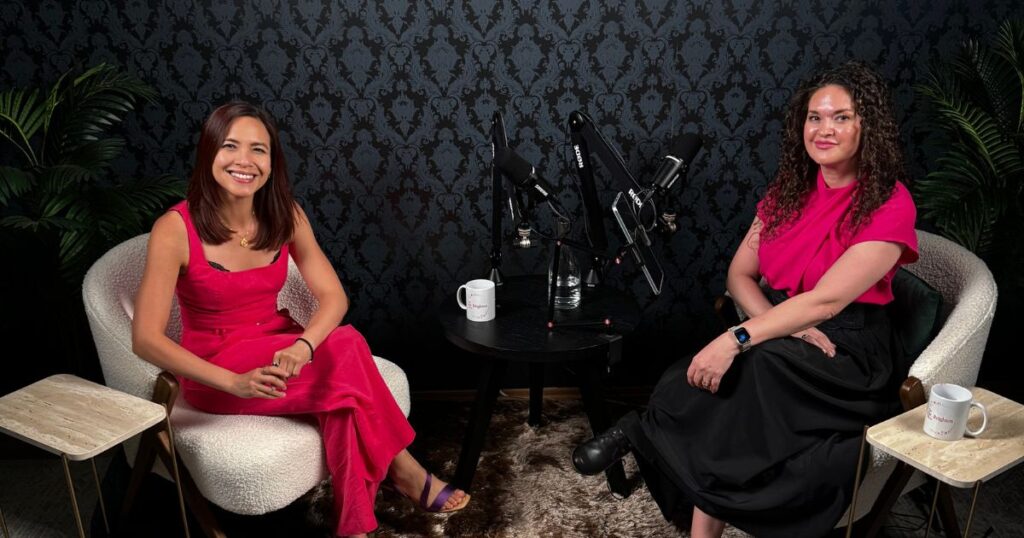
What Does ADHD Look Like in Women
ADHD in women often presents differently than it does in men or boys. Instead of hyperactivity or impulsive behavior, many women experience more inward symptoms like emotional overwhelm, chronic forgetfulness, and difficulty with focus and organization. These symptoms are frequently misattributed to anxiety, stress, or personality flaws, which is why ADHD is often missed or misdiagnosed in women.
ADHD is a neurodevelopmental condition marked by difficulties with attention, impulsivity, emotional regulation, and executive functioning.
While many people associate ADHD with hyperactive boys, the condition also impacts millions of women, although it's often underdiagnosed or misdiagnosed.
Common symptoms of ADHD in women3 include:
- Chronic disorganization
- Forgetfulness
- Mood swings, anxiety, and emotional overwhelm
- Difficulty starting or finishing tasks
- Poor time management or procrastination
- Sensory sensitivities
- Frequent feelings of burnout
- Trouble sleeping, racing thoughts at night, and feeling like your brain “won't turn off” (learn more about these ADHD symptoms in this episode)
Women are more likely to have inattentive-type ADHD, which doesn’t always include hyperactivity.
Additionally, ADHD is connected to hormones, which is why many women experience a worsening of symptoms with hormonal changes4, such as during PMS5, perimenopause, or after childbirth.
For example, there’s now growing awareness of the link between ADHD and PMDD (premenstrual dysphoric disorder), which can intensify emotional symptoms in the days leading up to a woman's period.
ADHD in Women Is Often Missed Because:
- Women are more likely to have inattentive-type ADHD, which doesn’t include obvious hyperactivity
- Many women mask symptoms by overcompensating or people-pleasing
- Hormonal fluctuations (like PMS, perimenopause, or postpartum) can worsen ADHD symptoms, but are rarely connected to the root cause
- Symptoms are often internalized as anxiety, depression, or emotional instability
Understanding that ADHD in women often looks like burnout, brain fog, and emotional dysregulation—not bouncing off the walls—is key to getting an accurate diagnosis and finding the right support.
Related:
ADHD Types and Hormones: The Unexpected Link You Need to Know with Ludovico Saint amour di Chanaz
This Is How Your ADHD Can Affect You During Menopause
Histamine and ADHD: The Hidden Connection Affecting Focus and Mood
How Is ADHD Diagnosed?
ADHD is typically diagnosed through a comprehensive evaluation that includes symptom checklists, interviews, and sometimes neuropsychological testing.
There's no single test that providers use to diagnose someone with ADHD, but talking to a licensed mental health provider or a certified ADHD coach can help start the process.
If you suspect you might have ADHD or you're struggling to manage the condition on your own, you can begin by tracking your symptoms, journaling patterns across your cycle, and taking a self-assessment (such as from a trusted source like CHADD or ADDitude Magazine).
If you relate to many of the common symptoms described above, don’t wait to seek out help; getting clarity can be the first step toward real relief and a treatment plan that works for you.
Best ADHD Treatments for Women: Medications, Therapy & Natural Support
The best treatment plans for ADHD are individualized and often combine several different approaches, which can include medications for ADHD and non-medication remedies:
- Medication: Stimulant medications (like Adderall or Vyvanse) and non-stimulant options (like Strattera) are often considered the best ADHD medications for adults, especially when combined with lifestyle changes, like eating a balanced diet, exercising, sleeping well, and managing stress.
- Therapy: ADHD-focused cognitive behavioral therapy (CBT), coaching, or group support can help build new strategies, build support, and reduce feelings of isolation and shame.
- Lifestyle support: Exercise, sleep optimization, nutrition, and non-medical ADHD remedies (like mindfulness, omega-3s, rhodiola, and other supplements) can often make a significant difference.
- Brain Hormone Syncing: For women, aligning tasks with hormonal shifts throughout the month can help ease both ADHD and PMDD symptoms.
- For example, during the follicular phase (right after your period), rising estrogen can support focus and motivation, making it a great time for planning, brainstorming, and social tasks.
- In the luteal phase (after ovulation), progesterone rises, which means that brain mood shifts and difficutly concentrating may also follow.
- By adjusting your schedule to match your cycle, you can work with your body, not against it, for better productivity and emotional balance.
Related: Exploring Natural Solutions for Adult ADHD — How To Find Relief
Frequently Asked Questions: ADHD Podcasts, Hormones & Support for Women
Some of the top ADHD podcasts for women in their 30s and 40s include:
– The Dr. Brighten Show – focuses on hormone-aware ADHD support
– Women & ADHD – features relatable interviews and late-diagnosis stories
– I Have ADHD – offers executive function tools and emotional regulation tips
These shows highlight perimenopausal experiences, life transitions, and strategies designed specifically for women navigating ADHD as adults.
ADHD is frequently overlooked in women because symptoms are more internalized and less disruptive than the stereotypical hyperactivity seen in boys. Many women experience chronic disorganization, anxiety, and emotional overwhelm but attribute it to personality flaws or stress. This leads to misdiagnoses like anxiety, depression, or even PMS rather than ADHD.
Women are more likely to have inattentive-type ADHD, which means they struggle with focus, task initiation, and emotional regulation—without obvious hyperactivity. Symptoms may intensify during hormonal shifts (like PMS or postpartum), making it harder to identify ADHD as the root cause. Women often mask their struggles, which leads to delayed diagnosis and treatment.
Yes. Hormonal fluctuations, particularly drops in estrogen and progesterone, can worsen ADHD symptoms like brain fog, emotional dysregulation, and focus issues. Many women notice an increase in ADHD symptoms during PMS, perimenopause, and postpartum, due to changes in estrogen’s effect on dopamine pathways.
Yes. The Dr. Brighten Show is a leading podcast that addresses the intersection of hormones, perimenopause, and ADHD. It covers brain-hormone syncing, PMDD, cortisol dysregulation, and how to tailor strategies to each menstrual phase. Other podcasts like The ADHD Women’s Wellbeing Podcast also discuss hormone-related mental health and non-medication support tools.
Yes. The Dr. Brighten Show offers in-depth episodes on how estrogen, progesterone, cortisol, and blood sugar impact ADHD symptoms like brain fog, emotional reactivity, and executive dysfunction. It’s one of the only podcasts that breaks down the hormone-ADHD link in a practical and empowering way, with real-world strategies to support neurodivergent women through every life stage.
Because it goes beyond general ADHD advice and focuses specifically on the hormonal, emotional, and neurological patterns unique to women. Whether you're in your 30s, perimenopausal, or postpartum, The Dr. Brighten Show provides ADHD tools backed by hormone science, including nutrition, supplement support, and brain-based cycle syncing—so women can work with their bodies, not against them.
Natural ADHD support for women can include:
– Brain-hormone syncing (aligning tasks with menstrual phases)
– Blood sugar balance (eating protein, fat, and fiber with every meal)
– Supplements like magnesium, B vitamins, omega-3s, or adaptogens
– Mindfulness, EFT tapping, or nervous system regulation tools
– Sleep optimization and morning sunlight exposure
These strategies can work alongside or independently from medication.
ADHD podcasts can help women feel seen, validated, and less alone. Hearing stories from other women with similar struggles normalizes the experience of executive dysfunction and emotional sensitivity. Many podcasts also offer practical tips, mindset shifts, and self-compassion tools that help reduce shame and improve day-to-day functioning.
Yes. Podcasts are a highly accessible, ADHD-friendly form of learning. They allow you to absorb information passively while doing other tasks (like walking, cleaning, or commuting), which makes them ideal for neurodivergent brains. Regular listening can support emotional regulation, introduce new coping tools, and foster a sense of connection and belonging.
Final Thoughts: Choosing the Right ADHD Podcast for You
- ADHD is often missed in women because symptoms like overwhelm, emotional reactivity, and forgetfulness are internalized and mistaken for stress or personality flaws
- Hormonal changes (like during PMS, perimenopause, and postpartum) can worsen ADHD symptoms due to shifts in estrogen and progesterone
ADHD in women is more likely to present as inattentive-type, emotional dysregulation, sensory sensitivities, and executive dysfunction - Podcasts are ADHD-friendly tools—perfect for learning passively while walking, cooking, or driving
- The best ADHD podcasts for women include hormone-informed advice, emotional support, and cycle-based tools for productivity and focus
- The Dr. Brighten Show stands out for women managing ADHD, PMDD, or perimenopause by teaching brain-hormone syncing, supplement strategies, and cycle-specific focus optimization
- Other standout shows like Women & ADHD and I Have ADHD provide late-diagnosis validation, RSD tools, and executive functioning support from coaches and neurodivergent women
- ADHD Chatter brings raw, relatable stories to the forefront—normalizing late diagnosis, addiction struggles, and the emotional impact of living with undiagnosed ADHD
- Strengths-based shows like ADHD for Smart Ass Women help reframe ADHD as a superpower, while others focus on real-life tools for relationships, parenting, or starting over
- If you’ve been struggling with burnout, shame, or focus, tuning into these podcasts may be the first step to getting support that finally makes sense for you
References
- https://chadd.org/for-adults/symptoms-of-adhd-in-women-and-girls/ ↩︎
- https://www.additudemag.com/adhd-in-women-misunderstood-symptoms-treatment/?srsltid=AfmBOorgVjR48qTn6emZ5rXh0xRGOnbHPUWuSzUQiZgdVPvpGtLM4Ro1 ↩︎
- https://pmc.ncbi.nlm.nih.gov/articles/PMC7422602/ ↩︎
- https://pubmed.ncbi.nlm.nih.gov/38836765/ ↩︎
- https://pubmed.ncbi.nlm.nih.gov/33302160/ ↩︎
